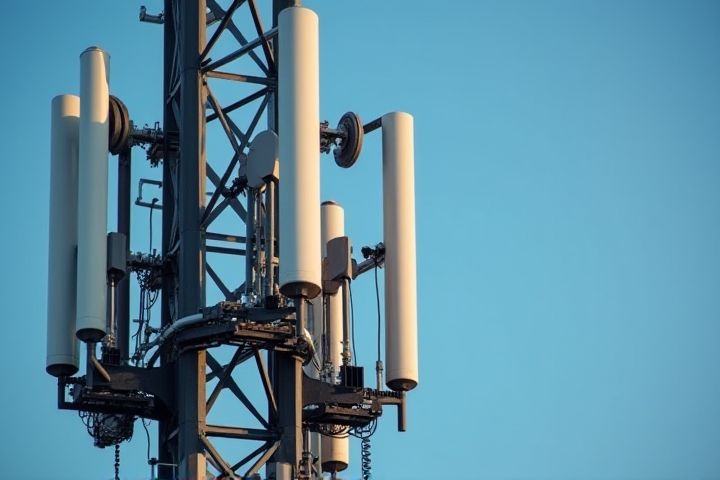
The Nigerian telecom industry is one of the largest and fastest-growing sectors in Africa, driven by a significant increase in mobile phone penetration, which exceeded 196 million subscribers as of 2023. Major players, such as MTN Nigeria, Airtel, and Glo, have intensified competition, offering diverse services ranging from voice and SMS to mobile data and broadband internet. Innovations like mobile money and digital payment solutions have also emerged, enhancing financial inclusion across urban and rural communities. Regulatory bodies, particularly the Nigerian Communications Commission (NCC), oversee the industry's growth and ensure fair practices among providers. With ongoing advancements in technology, including the rollout of 5G networks, the industry continues to reshape communication and economic opportunities in Nigeria.
Rapid Growth
The Nigerian telecom industry has experienced rapid growth, driven by technological advancements and increased mobile penetration. With over 200 million subscribers, the sector plays a critical role in the country's economy, contributing significantly to GDP and job creation. Innovative services such as mobile banking and data packages have enriched user experiences, catering to a diverse population. As competition intensifies, telecom companies are focusing on expanding infrastructure and improving service quality to meet the evolving demands of consumers.
Mobile Penetration
The Nigerian telecom industry has witnessed remarkable growth in mobile penetration, leading to over 80% of the population now having access to mobile services. Key players like MTN, Airtel, and Glo have contributed to this surge by expanding network coverage and introducing competitive pricing strategies. The rise of mobile technology has not only enhanced communication but also fostered financial inclusion through mobile banking platforms like Paga and OPay. This increase in connectivity is transforming various sectors, including agriculture, education, and healthcare, creating an ecosystem ripe for innovative solutions.
Diverse Market Players
The Nigerian telecom industry is characterized by a vibrant mix of market players, including established giants like MTN Nigeria and Airtel, alongside emerging companies and innovative startups. This diverse landscape fosters healthy competition, which drives technological advancements and customer-centric services such as mobile banking and internet access. Regulatory bodies like the Nigerian Communications Commission (NCC) play a crucial role in ensuring a fair playing field, promoting both consumer protection and investment opportunities. With a rapidly growing population and increasing smartphone penetration, the sector holds immense potential for growth, making it an exciting market for both consumers and investors.
Regulatory Framework
The regulatory framework in the Nigerian telecom industry is designed to enhance competition, protect consumer rights, and ensure fair pricing. The Nigerian Communications Commission (NCC) plays a pivotal role in overseeing this framework, implementing policies that promote infrastructure development and safeguard market integrity. With the rapid growth of mobile technology, regulations are continuously evolving to address issues like data privacy, licensing, and interconnection agreements. By understanding these regulations, you can better navigate the complexities of the telecom landscape in Nigeria.
Broadband Expansion
The Nigerian telecom industry is actively focusing on broadband expansion to enhance connectivity and digital access across the nation. Major telecommunications companies are investing in infrastructure development, particularly in fiber optic networks, to improve internet speed and bandwidth. The government's initiatives, such as the National Broadband Plan, aim to increase internet penetration and ensure affordable access to underserved areas. With a growing emphasis on mobile broadband, the sector is poised to support economic growth and innovation within Nigeria.
4G and 5G Deployment
The Nigerian telecom industry is currently emphasizing the deployment of advanced 4G and 5G networks to enhance connectivity and support digital transformation across various sectors. Major telecommunications providers are investing heavily in infrastructure upgrades to facilitate faster internet speeds, reduced latency, and improved overall network reliability. With the rollout of 5G technology, Nigerians can expect innovations in sectors such as healthcare, education, and smart city initiatives, significantly impacting productivity and quality of life. You can stay informed about these developments as they promise to reshape the technological landscape of Nigeria in the coming years.
Infrastructure Challenges
The Nigerian telecom industry faces significant infrastructure challenges, particularly in terms of network reliability and coverage. Poor power supply and inadequate road infrastructure hinder the deployment and maintenance of telecommunications equipment. Furthermore, regulatory issues and high operational costs contribute to the difficulties service providers experience in expanding their networks. To enhance connectivity, investment in renewable energy and public-private partnerships may offer viable solutions for overcoming these infrastructure obstacles.
Internet Accessibility
The Nigerian telecom industry is rapidly evolving, with a strong emphasis on improving Internet accessibility across urban and rural regions. Leading telecom operators are investing in infrastructure development, including fiber-optic networks and 4G technology, to enhance connectivity and reduce latency. Government initiatives, such as the National Broadband Plan, aim to increase Internet penetration from the current 45% to 70% by 2025, ensuring that more citizens can benefit from digital services. You can expect innovative solutions, like mobile Internet packages and community Wi-Fi projects, that cater specifically to underserved populations in Nigeria.
Pricing Competition
The Nigerian telecom industry is characterized by intense pricing competition among major operators, including MTN, Airtel, Glo, and 9mobile. This competitive landscape has led to a series of promotions, price cuts, and bundled services aimed at attracting new subscribers and retaining existing ones. Regulatory bodies, such as the Nigerian Communications Commission (NCC), monitor these practices to ensure fair competition and consumer protection. With the rise of mobile internet usage, pricing strategies not only impact voice services but also influence data plan offerings that cater to the increasing digital needs of Nigerian consumers.
Digital Transformation Initiatives
The Nigerian telecom industry is actively pursuing digital transformation initiatives to enhance operational efficiency and customer experience. Key players are investing in technologies such as 5G, artificial intelligence, and Internet of Things (IoT) to drive innovation and improve service delivery. By adopting these advancements, telecom companies aim to reduce costs, streamline processes, and expand their reach across underserved areas. You can expect a more connected and intuitive digital landscape as these initiatives reshape the Nigerian market.
